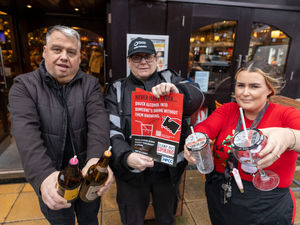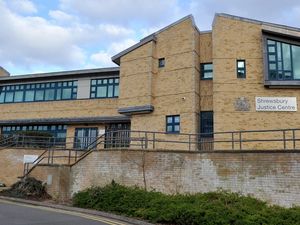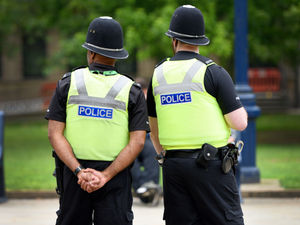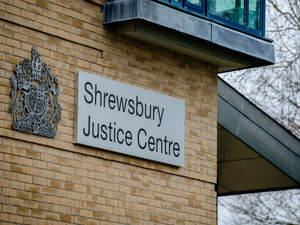Police and Crime Commissioner election - All you need to know
When Prime Minister David Cameron conceived of his idea for directly elected police and crime commissioners, it seemed as though it would be universally popular.
The gist was that local business people, community leaders and other volunteers would stand. They would bring considerable experience and local knowledge to the table and become the direct link between residents and their police force, making officers accountable to the local population.
Politics would be taken out of the elections and rank and file residents would effectively 'take ownership' of the police. Mr Cameron's Government believed that a significant number of voters would turn out so that they could decide who should run their force.
The idea was supported by the nation's three major political parties, with Conservatives, Liberal Democrats and Labour politicians all speaking in favour.
And yet, when voters in Shropshire go to the polls tomorrow, they'll face an all-too-familiar choice. Far from politics being kept out of the election; two of the three candidates standing to become West Mercia's Police and Crime Commissioner will be representing Conservative and Labour. Only one, ex-policeman Bill Longmore, will stand with no party political affiliation.
The idea that the general public would embrace the elections also seems likely to fail. Doom-laden forecasts suggest that only 15 per cent of the 40 million adults outside London eligible to vote are certain to vote. If this turns out to be the case, will the nation's newly-elected police commissioners with such low levels of public support have enough clout to operate?
In the West Mercia, the policing region which covers Shropshire, Labour candidate Dr Simon Murphy has made no secret of his party affiliation. He has posed for photographs with Shadow Home Secretary Yvette Cooper, and pledged to fight Conservative cuts to police spending.
He has received the backing of Peter Neyroud, deputy chief constable of West Mercia Police between 2000 and 2002, though three former chiefs of the West Mercia Police Authority, Brian Watkins, Joyce Thomas and Paul Deneen, have backed Dr Murphy's Conservative rival Adrian Blackshaw.
Conservative Mr Blackshaw has insisted that he is politically neutral. However, his claims have been challenged by Mr Longmore, who noted that his Tory rival had been campaigning with Home Secretary Teresa May, as well as Tory politicians in Shropshire including MPs Owen Paterson and Daniel Kawczynski.
Mr Blackshaw has resisted the criticism, even though his website includes the following statement: "As a Conservative – I firmly believe in the importance of good governance."
Mr Blackshaw said: "I have been campaigning with the help of Conservatives and independents in equal measure. Part of the funding for my campaign has come from people who have no political persuasion.
"If I am accused of being party political in office with evidence I will resign on the spot. I have no interest in party politics and I will be independent."
But such comments have not washed with Mr Longmore: "What will his position be when some of the very unpopular decisions the Home Secretary will make happen?" he said. "Is he going to say these are wrong?
"We have literally had thousands of people saying they don't want politics in the police. I can give the Labour candidate credit for saying it is a party political election."
The elections are the first of their kind and will lead to the election of 41 new police and crime commissioners across England and Wales.
The Home Office says the commissioners will ensure the policing needs of their communities are met as effectively as possible, bringing communities closer to the police, building confidence in the system and restoring trust.
The three candidates have visited Shropshire towns to speak about how they would run the local force. Mr Blackshaw, Mr Longmore and Dr Murphy have each said they want to see more support for police officers in rural parts of the county.
Mr Blackshaw said he believed more should CSOs should be used, while Mr Longmore said he would like to see a CSO based in every village. Dr Murphy said it was likely the number of special constables would grow in the future.
Mr Blackshaw, who is standing for the Conservative Party, said: "The role of crime commissioner will have a huge impact on all our lives. This is a fantastic initiative that will take politics away from policing."
Labour candidate, Dr Murphy, said: "I will try and get more police officers and CSOs on the beat, to get to know their communities, directly helping to fight against anti-social behaviour. There's also more we should be doing to tackle hate crime."
Independent candidate, Mr Longmore, said: "I stood as an independent because I didn't like the way the process was going."
The electorate will have the final say on Thursday when they decide between Dr Murphy, Mr Blackshaw and Mr Longmore. But, for many, it seems the biggest decision won't be who they choose: The biggest decision will be whether to vote or stay at home.
Dr Simon Murphy. Affiliation: Labour
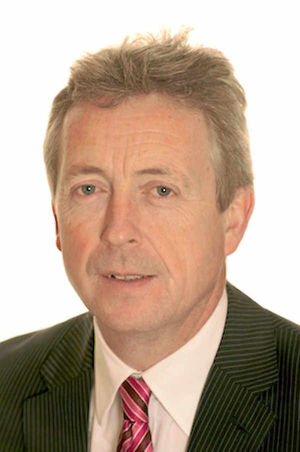
CV: A company director and chairman who also works in business development. He is married to Bridget and has two children – Jonathan, 11, and Niamh, 7. He grew up in Droitwich and achieved a PhD in Conflict Regulation. He now lives with his family in Worcester and is a former West Midlands Member of the European Parliament. He has worked as a university tutor and the chief executive of a chamber of commerce for the professional service sector in Birmingham. He enjoys running, swimming, reading, cooking and fishing.
Dr Murphy says: "I will be the voice of West Mercia people in the Police – their priorities will be my priorities as Police and Crime Commissioner. I will listen to their ideas so that together we can make West Mercia a safer place with less crime.
"I will keep bobbies on the beat in West Mercia, prevent private firms from replacing Police patrols on our local streets, and guarantee that Chief Constable David Shaw and his excellent officers are free from political interference by appointing an Independent Deputy Police and Crime Commissioner."
Bill Longmore. Affiliation: Independent
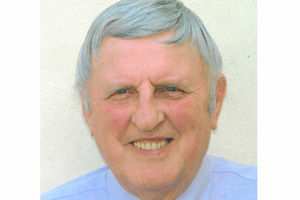
CV: Thirty years as a police officer, retiring with the rank of superintendent in 1986. Mr Longmore also enjoyed a successful business life, creating a multi-million pound company.
In recent times, he has devoted himself to public duty. He is the chairman of the Hanwood Village Hall Management Committee in Shropshire and project manager for the village's waterside park Community Spaces project. He was named winner of the BBC Midlands Sports Unsung Hero Award for 2011 in recognition of his work to develop sporting facilities in Hanwood during 12 years in the village, in particular with the women's football team and the local bowls club.
Mr Longmore says: "I have a lot of experience and I can talk at their (the chief constable's) level. I understand their world, I know all about the issues that they face.
"The elections will lead to a lot of inexperienced PCCs taking up posts. But I hope that in the West Mercia that won't happen. I don't have any political affiliation and I have funded my campaign myself, spending thousands of pounds on getting my message across."
Adrian Blackshaw. Affiliation: Conservative
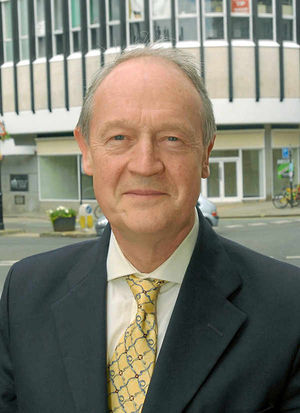
CV: He has built and managed a wide range of successful businesses and lives and farms with his wife, Julia, in Herefordshire. He has an excellent track record of forging and sustaining effective partnerships. He has successfully chaired two public/private sector partnerships – Visit Herefordshire and The Food & Drinks partnership.
As a county councillor, he has served in the cabinet where he held responsibility for economic regeneration, transport and sustainability. As a former Army officer, with three tours of Northern Ireland, he has experience of working with the Police in an intelligence role.
Mr Blackshaw says: "I will respond to your concerns, and crack down on anti-social behaviour and local crime, with resolute action. You tell me:
'Too many crimes go un-investigated. Every crime has an impact. Every crime matters.' I agree. I shall expect more crimes to be investigated and taken seriously. I will require police teams to hold regular community meetings so that residents can hold them to account. I will place local policing as my top priority and will do my utmost to support current levels of police community support officers."

